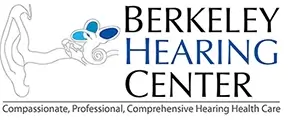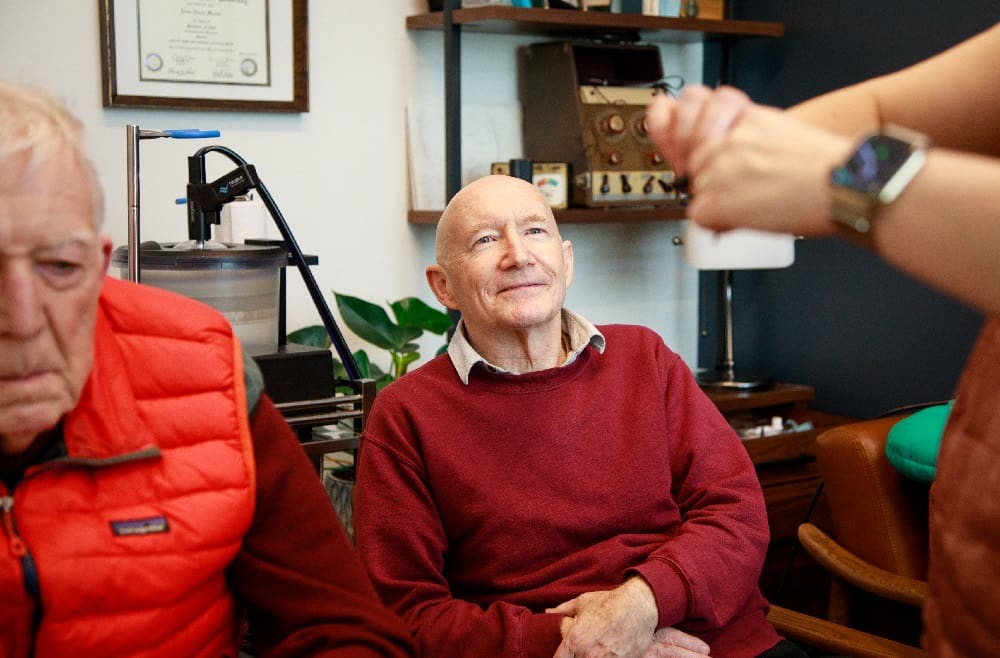2023-09-24
Jonathan Lipschutz Audiologist, M.S., F-AAA, Co-Owner
This is my 80th article for Berkeley Hills Living. Which means I’ve been writing an article a month for almost 7 years now! In all of those articles, I don’t think I’ve written specifically about balance or dizziness issues. Well that’s about to change! In part 1 of this series, I’m going to talk about the relationship between our hearing and balance.
The inner ear is most often associated with balance issues because that’s where the “organs” of balance (semicircular canals, utricle and saccule) are also located. In fact, the “organs” of balance and hearing share the same fluids (known as endolymph and perilymph), which is why something can affect both hearing and balance. Therefore we are often one of the first health care professionals patients see as they try to find out what’s causing their dizziness. A diagnostic hearing evaluation is an integral piece of the puzzle diagnosing balance/dizziness complaints.
There are effectively 3 ‘centers’ of balance–the vestibular, visual and musculoskeletal systems. The neural input from these 3 body systems allows the brain to determine our body position in space relative to the world around us. A problem with any of these systems can cause ‘balance’ issues. For instance, folks who’ve had knee or hip replacements may have balance or spatial awareness issues, not because they feel ‘dizzy’, but because their musculoskeletal system isn’t providing adequate information to the brain. Another very simple example is if we simply close one eye. We effectively lose our ability to accurately judge distance. Again, the brain isn’t getting the data it needs to do the job it’s tasked with. You will note that I differentiate between balance issues and dizziness. One can have balance (or gait) issues without feeling dizzy.
For those with true dizziness, often referred to as vertigo, diagnosis and treatment becomes a more challenging task. This is due to the difficulty of identifying what is actually causing the problem. To explain this, I need to digress (or ‘cut to the chase’ is maybe a better way to put it). Diagnosing, and therefore treating, true dizziness issues is extremely challenging (in part) for the same reason we also don’t know enough about hearing loss and tinnitus. Namely there’s no safe way to make measurements of what’s physiologically happening in the inner ear/vestibular system of a live person without damaging those systems. You’ll notice above that I put quotes around “organs”. This is because, unlike true organs like a heart or liver, one can’t hold a cochlea in their hand. The cochlea and vestibular systems are soft tissues and fluids encased in the temporal bone portion of the skull. We’ll never be able to transplant a cochlea. To simply put a probe in there or draw fluid out irreparably damages it. Therefore physicians have to use various diagnostic tests to narrow down where the problem might lie.
Apart from the hearing test, physicians may use imaging (MRI, CT), electrophysiological tests (ENG, VNG, posturography), gait testing, blood work, etc. to aid in diagnosis and treatment.
All of these tests are pieces of a puzzle the physician has to put together to figure out what’s happening and how they hope to address the problem for their patient.
In Part II, I’ll talk about some of the more common causes of dizziness/vertigo, and their current treatment. Till then, please continue to love your community by getting vaccinated/boosted & masking up where and when appropriate. And please always support our local businesses.
https://berkeleyhearing.com/wp-content/uploads/2024/11/Hearing-tests-are-essential-in-diagnosing-balance-issues-schedule-yours-today.jpg
Jonathan Lipschutz Audiologist, M.S., F-AAA, Co-Owner






